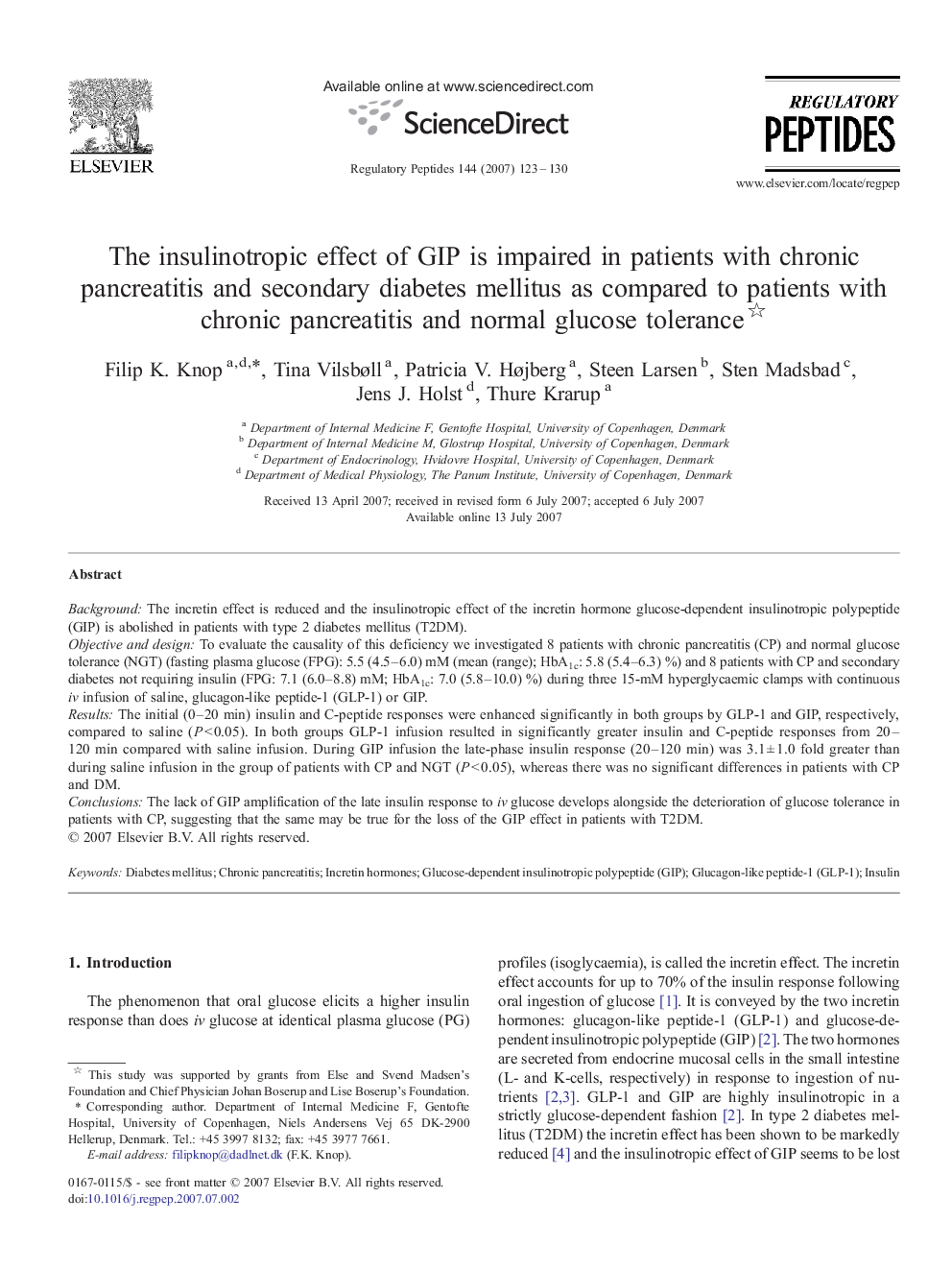| Article ID | Journal | Published Year | Pages | File Type |
|---|---|---|---|---|
| 2023357 | Regulatory Peptides | 2007 | 8 Pages |
BackgroundThe incretin effect is reduced and the insulinotropic effect of the incretin hormone glucose-dependent insulinotropic polypeptide (GIP) is abolished in patients with type 2 diabetes mellitus (T2DM).Objective and designTo evaluate the causality of this deficiency we investigated 8 patients with chronic pancreatitis (CP) and normal glucose tolerance (NGT) (fasting plasma glucose (FPG): 5.5 (4.5–6.0) mM (mean (range); HbA1c: 5.8 (5.4–6.3) %) and 8 patients with CP and secondary diabetes not requiring insulin (FPG: 7.1 (6.0–8.8) mM; HbA1c: 7.0 (5.8–10.0) %) during three 15-mM hyperglycaemic clamps with continuous iv infusion of saline, glucagon-like peptide-1 (GLP-1) or GIP.ResultsThe initial (0–20 min) insulin and C-peptide responses were enhanced significantly in both groups by GLP-1 and GIP, respectively, compared to saline (P < 0.05). In both groups GLP-1 infusion resulted in significantly greater insulin and C-peptide responses from 20–120 min compared with saline infusion. During GIP infusion the late-phase insulin response (20–120 min) was 3.1 ± 1.0 fold greater than during saline infusion in the group of patients with CP and NGT (P < 0.05), whereas there was no significant differences in patients with CP and DM.ConclusionsThe lack of GIP amplification of the late insulin response to iv glucose develops alongside the deterioration of glucose tolerance in patients with CP, suggesting that the same may be true for the loss of the GIP effect in patients with T2DM.
